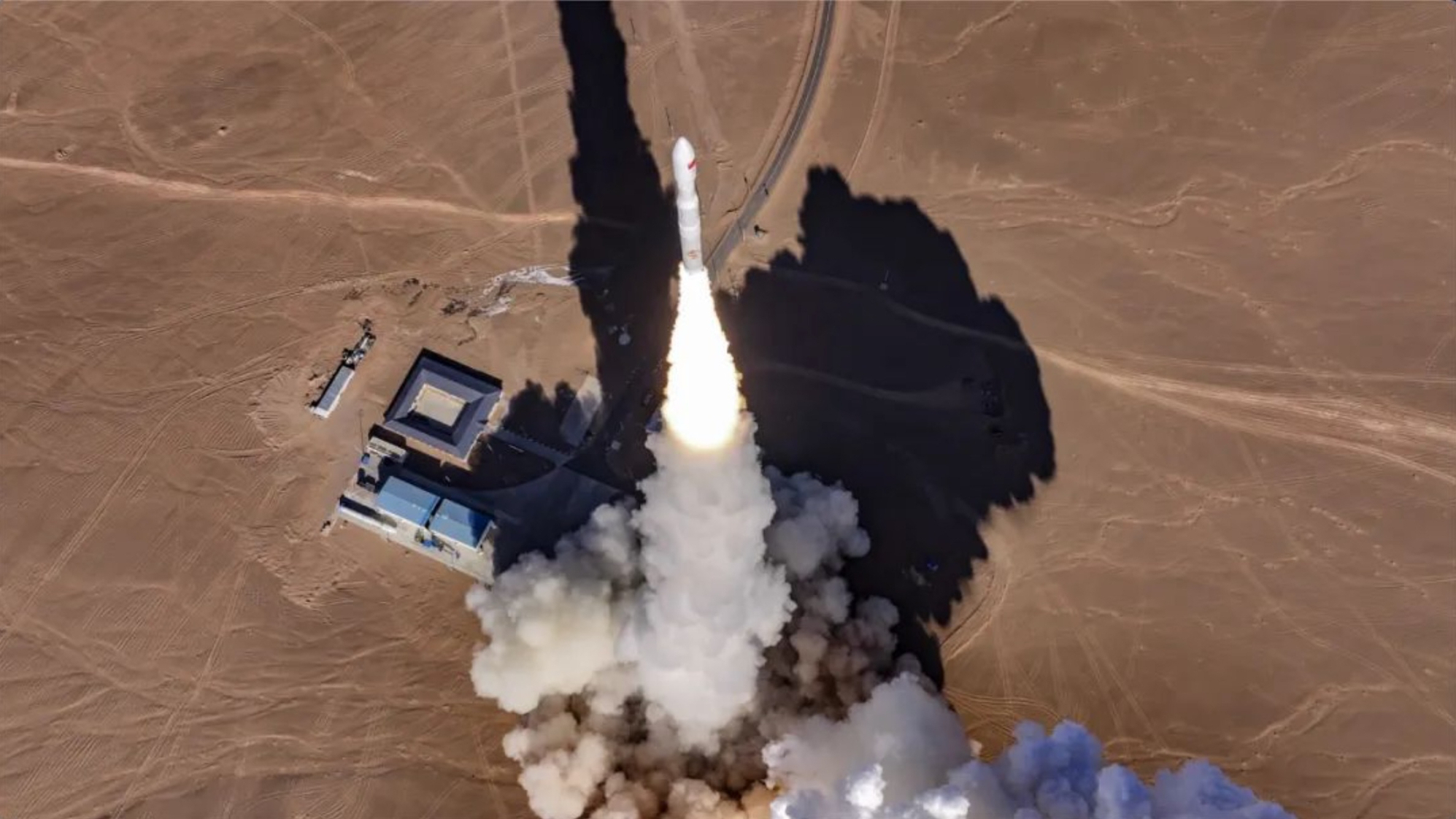
China's commercial space activities continue to grow, with a solid rocket putting five privately built satellites into orbit.
The third Kinetica-1 solid rocket lifted off from Jiuquan Satellite Launch Center in northwest China at 11:03 p.m. EST on Monday (Jan. 22; 0403 GMT and 12:03 p.m. Beijing time on Jan. 23).
Aboard were five Taijing satellites, all designed and built by Beijing-based private satellite maker Minospace.
Related: The latest news about China's space program

The Taijing-1C, 2B, 2D, 3B and 4C satellites are remote-sensing satellites for varying purposes. The first four are optical remote-sensing satellites, while Taijing-4C is a phased array synthetic aperture radar satellite operating in the Ku-band portion of the electromagnetic spectrum, according to a CAS Space statement.
The rocket was developed by CAS Space, a Beijing-based commercial launch service provider under the auspices of the state-owned Chinese Academy of Sciences (CAS).
The Kinetica-1 (also known as Lijian-1) is a four-stage, solid-fuel rocket that stands 98 feet (30 meters) tall and is capable of lifting 3,300 pounds (1,500 kilograms) of payload into a sun-synchronous orbit.
It has aced all three of its launches so far. Kinetica-1 had a debut flight in August 2022 and briefly set a national rideshare record with its second outing, which sent 26 satellites to orbit.
CAS Space recently announced plans to launch its new, larger and more complex liquid propellant rocket in August next year.
Kinetica-2 will be 174 feet (53 m) tall and consist of an 11-foot-wide (3.35 m) core stage, with two side boosters. It will be able to carry 17,200 pounds (7,800 kg) of payload into a sun-synchronous orbit, or 26,450 pounds (12,000 kg) into low Earth orbit.
CAS Space is also developing a suborbital tourism service similar to that offered by U.S. company Blue Origin. It is setting up a low-cost space science rideshare program open to international participants as well.
The Kinetica-1 mission was China's sixth orbital launch of 2024 so far.







